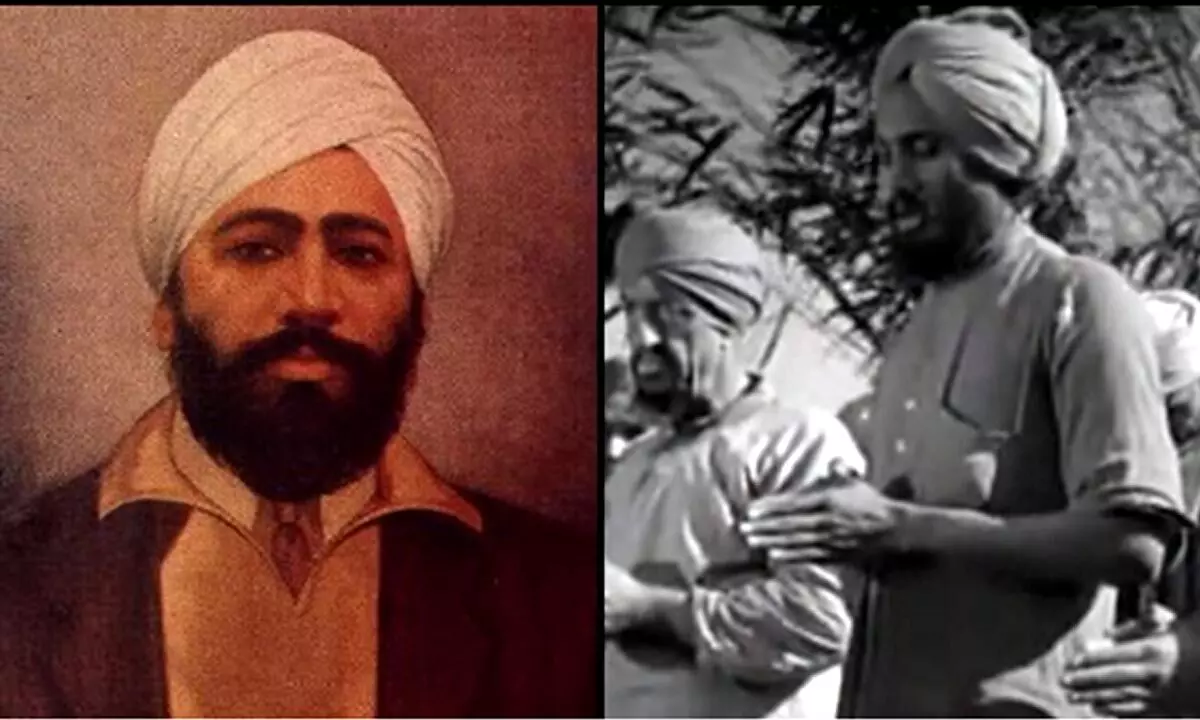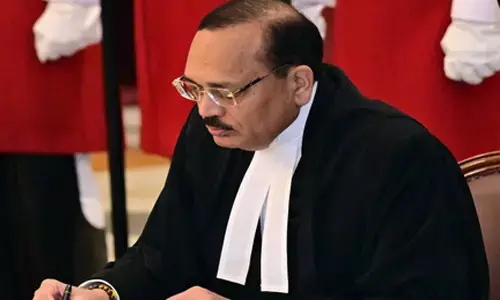The Patriot’s Blood is The Seed of Freedom’s Tree

Sardar Shaheed Udham Singh played a significant role in the history of the Indianfreedom movement. Sardar Udham Singh, who is also known by various other names viz.
Shaheed Udham Singh
----The Axe Forgets, But The Tree Doesn’t
---Thomas Cambell
Sardar Shaheed Udham Singh played a significant role in the history of the Indianfreedom movement. Sardar Udham Singh, who is also known by various other names viz. SherSingh, Ude Singh, Ram Mohammad Singh Azad and Frank Brazil. The name Ram Mohammad Singh Azadone amongst many of his namessymbolized the unification of the three major religions of India: Hinduism, Islam and Sikhism.
He was a worthy son of ourmotherland. He occupies a distinguished position in the galaxy of other great patriots.UdhamSingh (born Sher Singh) was born on 26th December 1899 in Sunam in the Sangrur district of Punjab situated in the Malwaarea to a farming family headed by Sardar Tehal Singh who was at that time working as awatchman on a railway crossing in the neighbouring village of Uppli.
Sher Singh's mother diedin 1901. His father followed in 1907.Later Udham Singh and his elder brother, MuktaSingh, were taken in by the Central Khalsa Orphanage Putlighar in Amritsar. They were given pahul at the orphanage and received new names: Sher Singh becameUdham Singh, and Mukta Singh became Sadhu Singh.
He passed his matriculation examination
in 1918 and left the orphanage in 1919. He was present in the Jallianwala Baghon the 13 April 1919, whena peacefulassembly of people were fired upon bythe troops of Colonel Reginald Edward Harry Dyer, killing over one thousandpeople. That event had a deep impact on his psyche and made him to tread the path of revolution. Soon after, he left India and went to the United States of America and was associated with the Ghadar Party.
He returned to India in 1920s and had secretly brought with him some revolvers. However, he was arrested in August 1927by the police inAmritsarand sentenced to five years imprisonment under the Arms Act.
Udham Singh was deeply influenced by the activities of Bhagat Singhand hisrevolutionary group. Afterhis release in 1931, he travelled to England. He was on the lookout for anopportunity to avenge the Jallianwala Bagh tragedy. The long-awaited moment at last came on 13March 1940. On that day, at 4.30 p.m. in the Caxton Hall, London, where a meeting of the EastIndia Association was being held in conjunction with the Royal Central Asian Society, UdhamSingh fired five to six shots from his pistol at Sir Michael O'Dwyer, who was the lieutenant governor ofPunjab when Jallianwala Bagh massacre had taken place. O'Dwyer fell to theground dead and Lord Zetland, the Secretary of State for India, who was presiding over themeeting got injured.
Udham Singh was overpowered with a smoking revolver. He in fact madeno attempt to escape and continued saying that he had done his duty for his country.On 1 April 1940, Udham Singh was formally charged with the murder of Sir MichaelO'Dwyer. On 4 June 1940, he was committed to trial, at the Central Criminal Court, Old Bailey,before Justice Atkinson, who sentenced him to death.
On 31 July 1940, Udham Singh was hanged in PentonvillePrison in London.Udham Singh was essentially a man of action. The letters written byhim while in prison show him as a man of great courage, with asense of humour. He called himself a guest of His Majesty King George, and he looked upondeath as a bride he was going to wed. By remaining cheerful to the last and going joyfully to thegallows, he followed the example of Bhagat Singh who had been his ideal.
During the trial,Udham Singh had made a request that his ashes be sent back to his country, but this was notallowed. In 1975, however, the Government of India, at the instance of the Punjab Government,finally succeeded in bringing his ashes home. Lakhs of people gathered on the occasion to payhomage to his memory. In 2018, his statue was installed at Jallianwala Bagh on Baisakhi day to commemorate his contribution and unparalleled sacrifice.
Udham Singh, while he was in London planning to avenge the Jallianwallahbagh massacre also acted in two Hollywood movies viz., Elephant Boy (1937), The Four Feathers (1939). This was done to fund the Ghadar Party of which he was part of.
PAHUL or Amrit Sanskar, is the name given in the Sikh tradition to the Baptism ceremony which is also known as the initiation ceremony into the Khalsa "brotherhood".
This tradition was started in 1669 by Guru Gobind Singh.
S.V.S.Kranthi Kumar
Sr.Faculty(Civil Services)










